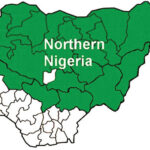I am much concerned about the northern youths and their clerics. This is because, their stance and debate on critical national issues, and challenges that need cogent attention are very low and not encouraging.
Challenges in northern Nigeria, have manifested in widespread poverty, hunger, insurgency, mutual suspicion and disunity. The case of Hanifa’s gruesome killing, the missing Dadiyata, the Kaduna non-stop massacres, not to mention those of Katsina, Zamfara and Sokoto.
The whole of the North West is engulfed in crises, which only God knows when they will end. All these are maladies that have lowered the thinking of the northern youths, which in turn, makes them to be less serious and easily forget such challenges. They shy away from analysing and discussing the challenges bedevilling their region. They get engaged on the social media discussing trivial issues. This is called cultural hegemony which is maintained through social institutions.
Politicians are successful in maintaining their status quo through hegemony. Hegemony which is the dominance of some social group (ruling class) over others (working class) is maintained in Northern Nigeria through religious and social institutions. The ruling class always develops a hegemonic culture using ideology to propagate their norms and values.
Our clerics are also not left out in this. They tend to neglect addressing our problems. They also fail to call on the government to quickly set measures to curtail further escalation of the problems. Instead, they choose to set “interfaith” as topic of discussion. Additionally, they are busy bashing their counterparts in their sermon and tafsir.
Given this scenario, one can infer that the northern politicians are successful in hegemonising the region through cultural and religious institutions.
Northerners, where do we keep our senses? Why do we tend to be quiet on our problems? Why do we behave like this? Are we really advocating for good governance and democracy? Is this how we want the region to continue in the subsequent years?, Then history will never forgive us.
Abdulazeez Alhassan wrote from Rigasa, Kaduna
 Join Daily Trust WhatsApp Community For Quick Access To News and Happenings Around You.
Join Daily Trust WhatsApp Community For Quick Access To News and Happenings Around You.

